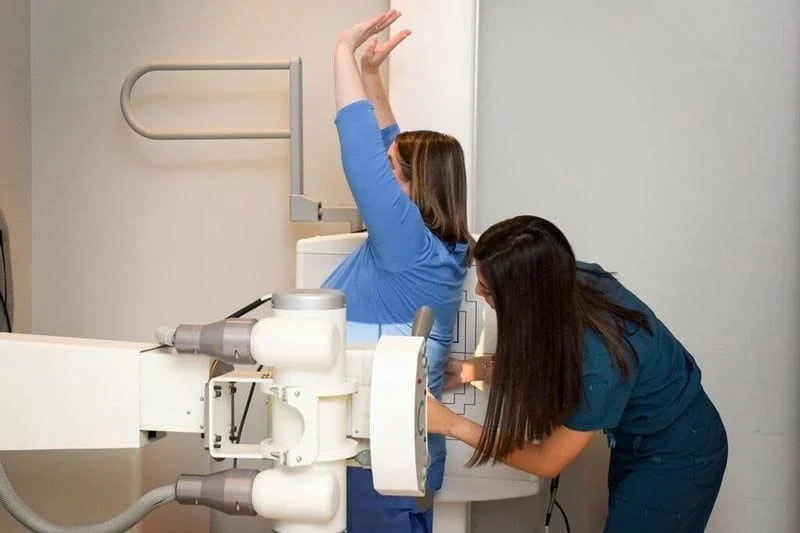Have you undergone back or neck surgery, just to experience the same (or worse) pain?
You’re not alone. For years, Dr. Callewart has treated patients with lingering pain after surgery. Sometimes, the surgery did not heal properly, the bones are out of alignment, or there is still a pinched nerve. Over the years, he has honed his skills to correct failed surgeries.
Diagnose My Pain
What Is Failed Surgery Pain?
Failed surgery syndrome is a name given to the group of patients who have not had a successful result with back or neck surgery and have experienced continued pain. Sometimes there are even new pains presented after a surgery. Depending on the kind of surgery completed, this can also be known as Post Laminectomy Syndrome.
Nearly one in 10 people experience back pain, causing more disability than any other condition in the world—and for many, surgery may be the only option for relief. Up to 40% of patients experience continued pain after surgery, which is often referred to as Failed Surgery Syndrome (FSS). There are many causes of persistent pain from poor nutrition after surgery causing incomplete healing, to the wrong kind of surgery.
Are you suffering from symptoms of a failed surgery? Take the first step to finding relief from your pain with our free interactive assessment below, and see how Dr. Callewart can help.
What Causes Post Surgery Pain?
Although surgeries are intended to restore a patient’s quality of life, some patients may continue to experience pain or limitations in performing daily activities. This continuation of symptoms is known as a failed surgery. In general, a failed surgery means persistent or recurring symptoms in anyone who has had previous surgery.
There are two primary reasons that a patient will undergo back surgery in the first place: to decompress a nerve root in order to relieve pain or to stabilize a joint that is compressing a nerve root and causing pain.
So, the main cause of failed surgery —the reason that a patient might still be experiencing pain—is because the area that the surgeon targeted in the original surgery was not actually the cause of the patient’s pain.
There are also a few risk factors that can be contributing causes to a failed surgery, including:
- Further disc herniation
- Disc disease or degeneration
- Arthritis
- Unstable movement
- Nerve damage within the nerve
- Increases in scar tissue
What Are The Symptoms Of Post Surgery Pain?
Patients might feel relief from their symptoms temporarily, but then start to feel pain again. Or they might feel like their symptoms never got better—and sometimes, they can even feel worse than before. Their symptoms might have gone from back pain to leg pain or from leg pain to back pain or both.
The common uniting symptom is that the patient has had previous back surgery and is now experiencing the same back pain again, which is holding them back from their daily activities.
If you are experiencing painful symptoms and have had a previous surgery meant to address this pain, you might have had a failed surgery. To learn more, start your diagnosis with our confidential pain assessment tool.
What Are My Treatment Options For Failed Surgery Syndrome?
The treatment of your pain will depend heavily on your original condition, the type of surgery that was previously performed, and a proper assessment of why the surgery failed.
In order to make this diagnosis, Dr. Craig Callewart will review a patient’s treatment history and analyze the type of surgery that was performed.
By comparing the records of the patient’s symptoms before and after the surgery, as well as doing a physical exam and looking at all available imaging like MRIs and CT scans, Dr. Callewart will be able to determine how successful the previous surgery was and recommend further treatment.
After a careful assessment of your patient history, it’s possible that Dr. Callewart will recommend non-surgical treatment first. These options could include:
- Nerve blocks
- Steroid injections
- Facet block
- Physical therapy
- Chiropractic care
- NSAID medications
- Physical training
Alternatively, sometimes it is clear, based on imaging and other diagnostic tools, that the source of a patient’s pain can be fixed through a second surgery. If this is the case, Dr. Callewart might recommend a new surgery to address this issue and eliminate your pain.
The type of surgery that will be recommended depends entirely on which one will help the most, but these are the most common surgeries we perform:
- Artificial disc replacement
- Microdiscectomy
- Microlaminectomy
- Spinal fusion
Frequently Asked Questions About Post Surgery Pain
1. How long does failed surgery syndrome last?
In some cases, patients can experience pain in the weeks following surgery that will alleviate as time goes on and they heal. But if it is truly failed back surgery syndrome, the pain will not end without treatment.
2. Can nerve damage from surgery be repaired?
Yes and no. This depends on the extent of the damage – and will need to be assessed by a medical professional.
